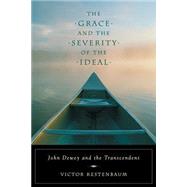
Note: Supplemental materials are not guaranteed with Rental or Used book purchases.
Purchase Benefits
Looking to rent a book? Rent The Grace and the Severity of the Ideal: John Dewey and the Transcendent [ISBN: 9780226432168] for the semester, quarter, and short term or search our site for other textbooks by Kestenbaum, Victor. Renting a textbook can save you up to 90% from the cost of buying.
| Preface | |
| Acknowledgments | |
| Under Ideal Conditions | |
| The Pragmatic Struggle for the Good | |
| "In the Midst of Effort" | |
| Humanism and Vigilance | |
| The Rationality of Conduct: Dewey and Oakeshott | |
| The Undeclared Self | |
| "Meaning on the Model of Truth": Dewey and Gadamer on Habit and Vorurteil | |
| Faith and the Unseen | |
| Dewey, Wallace Stevens, and the "Difficult Inch" | |
| Notes | |
| Index | |
| Table of Contents provided by Publisher. All Rights Reserved. |
The New copy of this book will include any supplemental materials advertised. Please check the title of the book to determine if it should include any access cards, study guides, lab manuals, CDs, etc.
The Used, Rental and eBook copies of this book are not guaranteed to include any supplemental materials. Typically, only the book itself is included. This is true even if the title states it includes any access cards, study guides, lab manuals, CDs, etc.